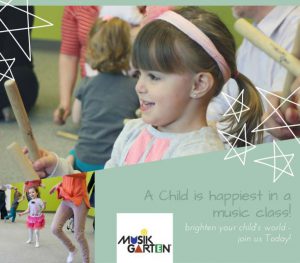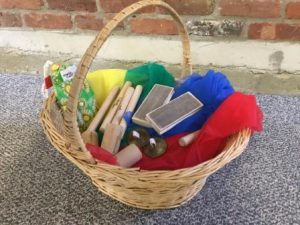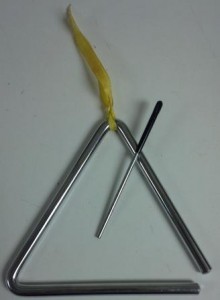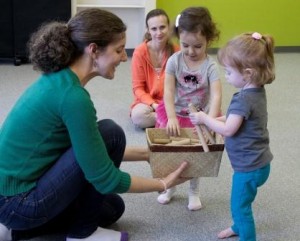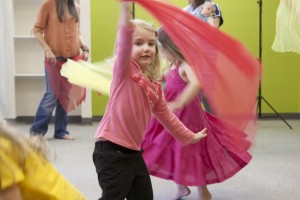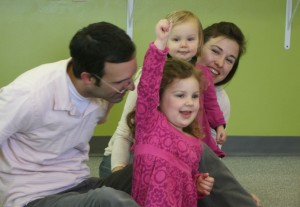There’s more to building a successful Musikgarten studio than just making beautiful music. You’re growing a business, too! Today, there are a host of online business tools and apps that can help you to more quickly, easily, and professionally manage your Musikgarten studio. These tools can help alleviate stress, grow your business and give you more time to do what you love – teach! We’ve researched and vetted a number of trusted, top-rated business tools just for you. Each recommended tool below is user-friendly, free*, and is “just right” for small businesses like your Musikgarten studio.
Classroom Management
These programs and apps can help you manage your classes right from your laptop, tablet or phone!
TeacherKit
Many Musikgarten teachers have told us about TeacherKit, a simple, easy-to-use, and feature-rich app that “makes day-to-day teaching a breeze by eliminating the headache of routine class administration.” Teachers can organize classes and manage students, behavior, performance and progress.
ClassDojo
Three million teachers use ClassDojo to keep students alert and on-task. You can improve student behavior and engagement by awarding and recording in real-time, with just one click. Engage parents and caretakers with instant messages, photos, and announcements. 100% free.
Find more Classroom Management Apps here.
CRM (Customer Relationship Management) Software
CRM software is designed to help businesses of all sizes manage client and customer data (name, contact information, family info, enrollment date, classes, etc.) and customer interactions (emails, invitations, attendance), access business information such as monthly sales reports, automate transactions, marketing and customer support. While some CRM software programs are very complex, there are a few that are specifically designed for small businesses and first-time users.
Salesforce is an all-in-one, cloud-based solution that has everything you need in CRM software. Although this software is typically associated with larger businesses, Salesforce’s small business edition lets you access the product’s sophisticated CRM tools with a 30-day free trial and an affordable, small-business-friendly monthly fee.
Zoho CRM is free. Yes, free. This software is best for very small businesses that require a simple CRM solution, specifically, those with no more than 10 employees. Because it’s free, Zoho CRM is a budget-friendly way for small businesses that aren’t sure about CRM software to test- drive one and figure out if it’s worth the investment.
Insightly is an easy-to-use, feature-rich CRM package that won’t break the bank. There’s a free plan that will fit even the smallest of businesses, and paid plans start at just $12 per month. Insightly comes with all the time-saving CRM capabilities a small business requires, such as contact and customer management, opportunity management and sales reports, all in a single solution. But it can also be scaled to meet your needs as your Musikgarten studio grows. And because it’s cloud-based, you can access your data anytime, anywhere, even from mobile devices.
Email Services
As your studio grows you’ll need an easy way to build and manage your expanding email list, send attractive and effective emails, and track email performance such as open rates. While many CRM software packages include email as part of their service offering, you may just want a simple email solution. Here are three great options:
MailChimp Wow! More than 8 million people and businesses around the world use MailChimp. The easy-to-use features and templates allow you to send emails, automated messages, and track your email performance – no design or high-tech skills required! You can send up to 12,000 emails to 2,000 subscribers for free.
GetResponse features a user-friendly interface making it one of the easiest programs help you get emailing in no time. Other free perks include: online surveys, inbox preview, auto responder, and social networking integration and excellent customer service. GetResponse offers a 30-day free trial and monthly pricing starts at $15 a month for 1,000 subscribers. Check out GetResponse here.
Campaigner has an entry price at $19.95 for up to 1,000 subscribers plus a 30-day free trial. They also offer 800 customizable email templates and an easy-to-use contact manager. Campaigner has one of the best reputations in the industry for customer service, offering free, 24/7 support. Check out Campaigner here.
Event Planning and Sign-Ups
Say goodbye to paper sign ups and invitations! No more back-and-forth emails to keep up with, either! This is the age of invitation automation.
VolunteerSpot is the fast, easy, and free way to plan events and sign up parents to show up, participate, or donate. Use it to plan demo classes, orientations, parties, performances, awards nights, fundraisers – anything! No passwords are required and it works on all mobile devices. The best part is, VolunteerSpot sends out email reminders automatically so you don’t need to pester parents to sign up or show up. VolunteerSpot is a favorite among schools, churches, teachers, and parents because it’s so easy for everyone to use!
EventBrite allows you to easily plan, promote, manage, and host successful events such as performances. You can sell tickets, allow people to register online, and even send out emails and reminders on social media. Check out EventBrite.
Social Media
HootSuite allows you to schedule posts, track, and manage multiple social media accounts from one place. Facebook, Twitter, Instagram, YouTube (and more) are all covered under HootSuite. No more logging into multiple accounts – easy-to-use HootSuite ties them all together for you. Check out the free option!
Not using social media to market your Musikgarten studio? Here’s why you should – and how to get started!
Online Meetings and Screen Sharing
Organize and host online meetings, webinars, demos, and share your screen easily and securely from your computer!
Join.Me is free and super easy to use! You can use this to share videos, too.
Google Hangouts is also another great option especially if you’re already using gmail.
Accounting and Expense Tracking
Shoeboxed helps you scan, record, and save receipts for business and personal expenses. You don’t have to scan each receipt yourself; either snap a photo with your smartphone right from the app or mail your receipts to Shoeboxed and they do it for you. There’s a free plan and a Lite plan for just $9.95 a month. Shoeboxed integrates with Quickbooks.
Freshbooks makes business accounting tasks easy, fast and secure. You can send invoices, track employee time and track business expenses such as rent and materials, in minutes. Freshbooks has live, fast, and friendly customer service, too. Try Freshbooks free for 30 days here.
Tell us what tools you’re using to grow your Musikgarten studio!
*Each of these tools offers a totally free package or free trial period. All are affordable and right-sized for your Musikgarten studio.






